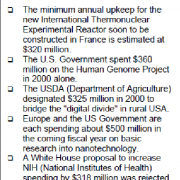Seeds Saved in Spoleto
Submitted by ETC Staff on
A rare tiff with the seed and biotech industries over intellectual property will leave the USA and Australia outside looking in on a new agricultural genetic resources treaty. Next steps: the FAO Commission in June and the World Food Summit in November?

